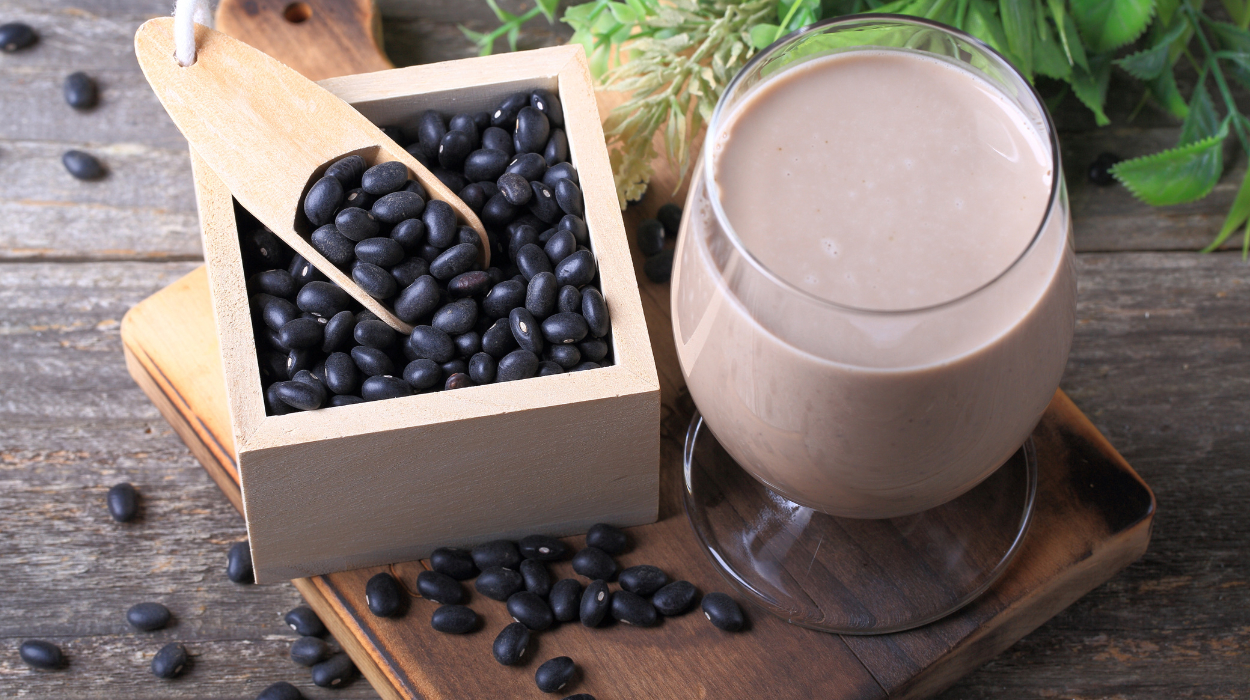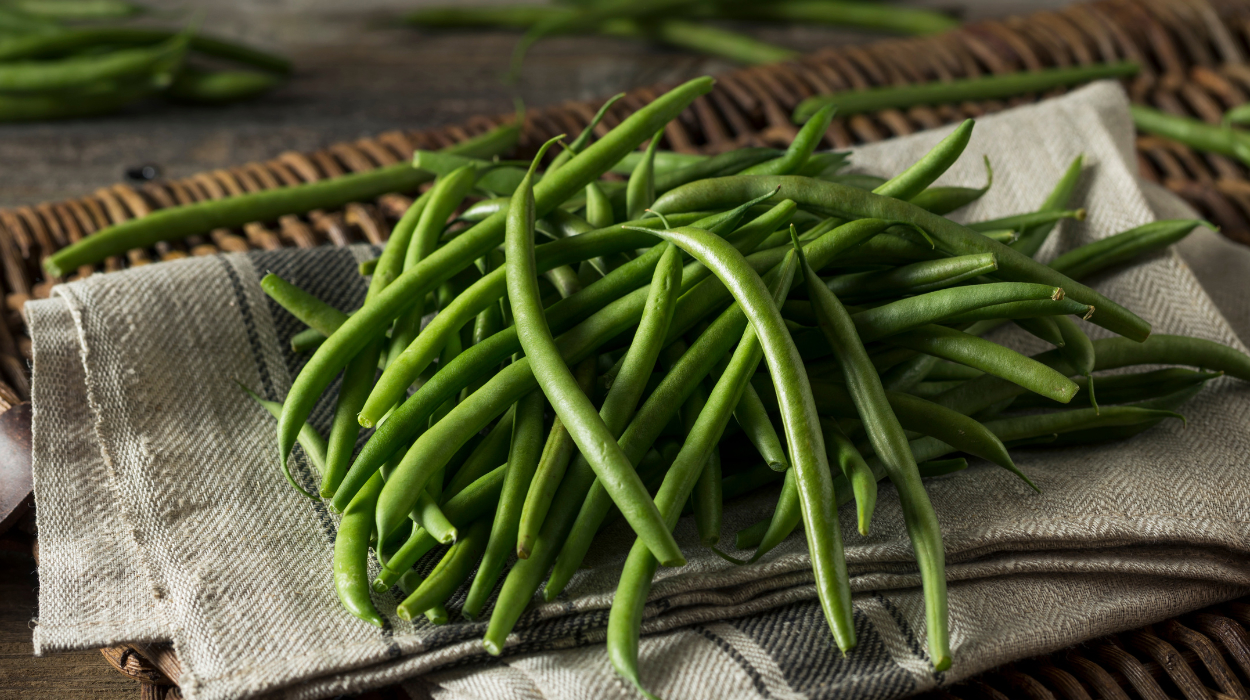 Expert's opinion
Expert's opinion
Expert's opinion
The article is a subjective view on this topic written by writers specializing in medical writing.
It may reflect on a personal journey surrounding struggles with an illness or medical condition, involve product comparisons, diet considerations, or other health-related opinions.
Although the view is entirely that of the writer, it is based on academic experiences and scientific research they have conducted; it is fact-checked by a team of degreed medical experts, and validated by sources attached to the article.
The numbers in parenthesis (1,2,3) will take you to clickable links to related scientific papers.
Best Low-Carb Beans You Can Add To Your Diet In 2024

Whether you’re looking to lose weight or clean up your diet a little, you will most likely find yourself exploring the world of low-carb diets. And if you’re on a plant-based diet, you’ll look at low-carb cereals and low-carb protein sources like low-carb beans and legumes.
Keeping your protein intake on the higher side is known to help grow and maintain your muscles while you’re on your weight loss journey,[1] and vegan protein sources can often bring the total carbs higher than you want to. Legumes, however, are not a complete protein source as they lack the essential amino acid methionine. The net carbs in beans vary, so educating yourself on which beans best fit your low-carb diet is important.
What Beans Are Low In Carbs?
The best beans that are low in carbohydrates include:
- Black soybeans
- Edamame
- Fava beans
- Black-eyed peas
- Green Beans
Lowest-Carb Beans You Can Enjoy On A Diet
When it comes to choosing the lowest-carb beans for a diet, here are some options to consider:
Black Soybeans

Black soybeans are one of the lowest-carb bean options available. They are high in fiber and complete protein, making them a nutritious choice. They also contain antioxidants[2] and essential nutrients.
Edamame
Edamame beans[3] are young soybeans that are harvested before they fully mature. They are rich in protein, dietary fiber, and various vitamins and minerals. They are particularly high in folate, vitamin K, and manganese. They also contain a good amount of iron, calcium, and potassium. They are also a complete protein and very low in carbohydrates.
Fava Beans
Fava beans are highly nutritious and provide a range of beneficial nutrients.[4] They are a good source of plant-based protein and dietary fiber. Fava beans are also rich in vitamins and minerals, including folate, vitamin K, vitamin B6, iron, and manganese. They are low in carbohydrates, and they are cholesterol-free.
Black-Eyed Peas
Also known as cowpeas, black-eyed peas are a good source of plant-based protein, dietary fiber, and complex carbohydrates. They are also low in fat and contain essential vitamins and minerals, including folate, iron, potassium, and magnesium. They’re a great addition to an already healthy diet[5] as well as for those on a ketogenic diet.
Green Beans

One cup of green beans provides a mere seven grams of net carbs. They are legumes with a low glycemic index, which will create a slower rise in blood glucose. While not terribly high in protein, they are powerhouses of vitamins and minerals, particularly folate. Green beans are keto-friendly.
Great Benefits Of Low-Carb Beans
Low-carb beans offer several benefits that make them a valuable addition to a healthy diet:
- High in fiber: Beans are rich in dietary fiber, particularly soluble fiber. Dietary fiber aids digestion,[6] while soluble fiber helps regulate blood sugar levels and promotes satiety.
- Nutrient-dense: Beans are packed with essential nutrients,[7] like folate, iron, potassium, magnesium, and zinc, which are important for overall well-being.
- Plant-based protein source: Most beans are an excellent source of plant-based protein[8] except for the essential amino acid methionine. They are also lower in fat than animal protein sources.
- Weight management: Beans can aid in weight management.[9] Their high fiber and protein content contribute to feelings of fullness, which can help control appetite and reduce overall calorie intake.
- Heart health: Low-carb beans have been associated with several heart health benefits.[10] They are low in saturated fat, which helps lower cholesterol levels and improve lipid profiles. Beans are also rich in antioxidants,[11] which can support cardiovascular health.
- Blood sugar control: Beans lower in net carbs per serving have a lower glycemic index, which means they have a slower and more gradual impact on blood sugar levels.
Which Diets Can You Add Low-Carb Beans To?
When adding low-carb beans to your diet plan, it’s important to count in your overall macronutrient intake and goals. What does low-carb specifically mean to you? If you’re simply interested in lowering your carb intake for weight loss purposes, adding low-carb baked beans or low-carb chili with beans are great examples.
On the other hand, if you’re following a keto diet, you might want to sit down and crunch some numbers, as even low-carb beans contain some carbohydrates. It will all depend on your overall carbohydrate intake for the day and whether or not these beans fit your macros.
Beans are a great source of fiber and an incomplete protein source[12] for those following a plant-based diet or those interested in exploring non-carnivore protein sources. However, those with small intestinal bacterial overgrowth[13] or other digestive issues should consult their physician or registered dietitian before adding more legumes.
Beans, like legumes, are rich in fiber[14] and fermentable carbohydrates such as polyols. Too much of these carbohydrates can sometimes harm people suffering from gastrointestinal diseases.[15]
Ways To Incorporate Low-Carb Beans Into Your Diet
Incorporating low-carb diets is a great way to add variety, nutrition, and texture to your meals. Still, remember to cook dry beans thoroughly or rinse canned beans to remove excess sodium and chemicals that may cause bloating and gas. Here are some ideas for your next meal:
- Add cooked and cooled beans like black soybeans, edamame, or fava beans to your salads.
- Beans are a classic ingredient in soups and stews. They can add thickness and flavor to the dish.
- Prepare delicious and healthy low-carb bean dips by blending fava beans or black soybeans with garlic, lemon juice, and spices.
- Create homemade veggie burgers or patties using beans as the base. Mashed fava beans combined with vegetables, herbs, and spices can make a flavorful and satisfying option.
- Lower-carb beans like black-eyed peas can be used in Mexican-inspired dishes like bean chili or low-carb refried beans. You can also use them as a filling for tacos or burritos.
- Add cooked edamame or black soybeans to your stir-fries or sautés for added crunch and nutrition.
- Serve low-carb bean side dishes alongside grilled chicken, fish, or roasted vegetables. Season them with herbs, spices, and a drizzle of olive oil for extra flavor.
- Explore bean-based pasta alternatives made from low-carb beans like black soybeans or lentils. These can be a protein-rich and gluten-free alternative to traditional pasta.
- Some low-carb bean sources can be used in desserts too. Create bean-based desserts like black bean brownies for a healthier twist on classic treats.
- Avoid high-carb beans like pinto beans, lima beans, and kidney beans.
Low-Carb Plant-Based Alternatives To Beans
If you’re following a plant-based diet and want to stay low-carb but cannot stomach beans, here are some alternatives:
- Cauliflower: Cauliflower is a versatile vegetable that can be substituted for beans in many recipes. It can be riced, mashed, or roasted to mimic the texture and appearance of certain bean dishes.
- Zucchini: Another low-carb vegetable and low-carb greens superfood that can be spiralized or sliced into noodles to replace beans in pasta dishes.
- Eggplant: Eggplant can be roasted, grilled, or sautéed to create a meaty texture in dishes like stews, curries, or stir-fries.
- Mushrooms: Mushrooms are an excellent plant-based option that can provide a meaty texture and umami flavor to dishes. They can be used instead of beans in soups, stir-fries, and even burgers.
- Tofu: Tofu is a low-carb protein source that can be used instead of beans in many recipes. It can be marinated, grilled, stir-fried, or crumbled to mimic the texture and versatility of beans while keeping the carb count low.
- Tempeh: Tempeh is another soy-based product that is low in carbs and high in complete protein. It’s a suitable replacement for beans in various dishes.
- Seitan: Seitan, also known as wheat gluten, is a low-carb alternative that is high in protein. It can be used as a meat substitute for stews, stir-fries, or sandwiches.
- Nuts and seeds: Nuts and seeds can add protein, healthy fats, and texture to your meals. Almonds, walnuts, chia seeds, and hemp seeds are some options to consider. Hemp is a complete protein source.
Conclusion
Low-carb diets can sometimes be hard to follow and stick to, especially if you’re unsure which foods to add to your meals. If you want to eat beans but are afraid of their carbohydrate content, stick to these lower-carb options, add some high-quality plant-based supplements, and stay on top of your diet.
+ 15 sources
Health Canal avoids using tertiary references. We have strict sourcing guidelines and rely on peer-reviewed studies, academic researches from medical associations and institutions. To ensure the accuracy of articles in Health Canal, you can read more about the editorial process here
- Moon, J. and Koh, G. (2020). Clinical Evidence and Mechanisms of High-Protein Diet-Induced Weight Loss. [online] 29(3), pp.166–173. doi:https://doi.org/10.7570/jomes20028.
- Ganesan, K. and Xu, B. (2017). A Critical Review on Polyphenols and Health Benefits of Black Soybeans. Nutrients, [online] 9(5), pp.455–455. doi:https://doi.org/10.3390/nu9050455.
- Marvin Nathanael Iman, Rafidha Irdiani, Rahmawati, D., Eiichiro Fukusaki and Sastia Prama Putri (2023). Improvement of the functional value of green soybean (edamame) using germination and tempe fermentation: A comparative metabolomics study. Journal of Bioscience and Bioengineering. [online] doi:https://doi.org/10.1016/j.jbiosc.2023.05.012.
- Inger-Cecilia Mayer Labba, Hanne Frøkiær and Sandberg, A.-S. (2021). Nutritional and antinutritional composition of fava bean (Vicia faba L., var. minor) cultivars. Food Research International, [online] 140, pp.110038–110038. doi:https://doi.org/10.1016/j.foodres.2020.110038.
- Handi Wiradharma, Pande Made Dwijasa and Maharani Maharani (2022). Black-Eyed Pea Diet Alleviates High-Density Lipoprotein Cholesterol In Menopausal Women; Randomized… [online] ResearchGate. Available at: https://www.researchgate.net/publication/359737263_Black-Eyed_Pea_Diet_Alleviates_High-Density_Lipoprotein_Cholesterol_In_Menopausal_Women_Randomized_Clinical_Trial_Study [Accessed 7 Sep. 2023].
- Samantha Kirsty Gill, Rossi, M., Balazs Bajka and Whelan, K. (2020). Dietary fibre in gastrointestinal health and disease. [online] 18(2), pp.101–116. doi:https://doi.org/10.1038/s41575-020-00375-4.
- Messina, V. (2014). Nutritional and health benefits of dried beans,,. [online] 100, pp.437S442S. doi:https://doi.org/10.3945/ajcn.113.071472.
- Martineau-Côté, D., Allaoua Achouri, Salwa Karboune and Lamia L’Hocine (2022). Faba Bean: An Untapped Source of Quality Plant Proteins and Bioactives. [online] 14(8), pp.1541–1541. doi:https://doi.org/10.3390/nu14081541.
- Wang, S., Chen, L.-S., Yang, H., Gu, J., Wang, J. and Ren, F. (2020). Regular intake of white kidney beans extract ( Phaseolus vulgaris L.) induces weight loss compared to placebo in obese human subjects. [online] 8(3), pp.1315–1324. doi:https://doi.org/10.1002/fsn3.1299.
- Nayane Maria Vieira, Vinícius Vigliazzi Peghinelli, Marina Gaiato Monte, Nara Aline Costa, Amanda Gomes Pereira, Marcos Mitsuo Seki, Schmidt, P., Bertha Furlan Polegato, Alberto, S., Antonio, L. and Minicucci, M.F. (2023). Beans consumption can contribute to the prevention of cardiovascular disease. Clinical nutrition ESPEN, [online] 54, pp.73–80. doi:https://doi.org/10.1016/j.clnesp.2023.01.007.
- Harald Mangge, Becker, K., Fuchs, D. and Gostner, J.M. (2014). Antioxidants, inflammation and cardiovascular disease. [online] 6(6), pp.462–462. doi:https://doi.org/10.4330/wjc.v6.i6.462.
- Mullins, A. and Arjmandi, B.H. (2021). Health Benefits of Plant-Based Nutrition: Focus on Beans in Cardiometabolic Diseases. Nutrients, [online] 13(2), pp.519–519. doi:https://doi.org/10.3390/nu13020519.
- Sorathia, S.J., Venu Chippa and Rivas, J.M. (2023). Small Intestinal Bacterial Overgrowth. [online] Nih.gov. Available at: https://www.ncbi.nlm.nih.gov/books/NBK546634/ [Accessed 7 Sep. 2023].
- Saurabh Kadyan, Sharma, A., Arjmandi, B.H., Singh, P. and Nagpal, R. (2022). Prebiotic Potential of Dietary Beans and Pulses and Their Resistant Starch for Aging-Associated Gut and Metabolic Health. Nutrients, [online] 14(9), pp.1726–1726. doi:https://doi.org/10.3390/nu14091726.
- Justyna Paulina Wielgosz-Grochowska, Domanski, N. and Małgorzata Drywień (2022). Efficacy of an Irritable Bowel Syndrome Diet in the Treatment of Small Intestinal Bacterial Overgrowth: A Narrative Review. Nutrients, [online] 14(16), pp.3382–3382. doi:https://doi.org/10.3390/nu14163382.



